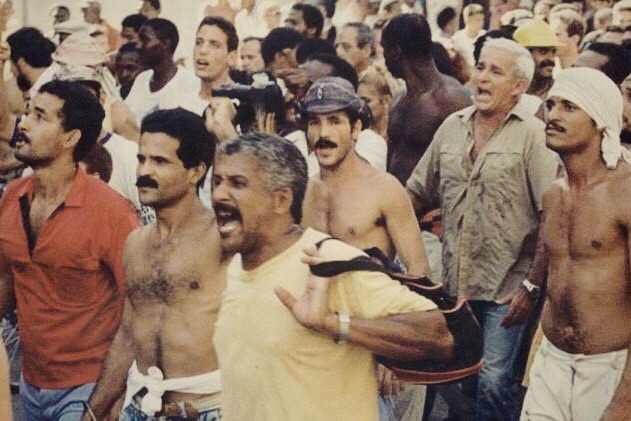
Somos+, Elizabeth Cruz, 5 August 2015 — We Cubans are chatty, talkative and protagonists of everything whether it’s for good or for bad. Recently arrived in Miami, I heard someone say that we’re like crabs in a pail: when one tries to escape, another one pulls it back to the bottom without needing a lid. The analogy seemed so ingenious to me that, for a long time, it was enough to confuse me about our essence.
In reality, the vast majority of Cubans are noble, brave and full of solidarity, and there are innumerable examples of this. Why delve into despair? Who benefits from our division and mistrust?
Today it’s been more than two decades since the Maleconazo took place. I don’t know if you remember, but in my memory I’m in my apartment facing the Malecón and there is a party feeling. Down the streets comes a lot of excited activity, which at first we confuse with some official act, one of the many that go by unnoticed, even for those who participate.
From the propped-up balcony, it didn’t take long for us to hear the shouts of “Freedom.” A good neighbor pointed out the little boat from Regla that, facing the Morro, was trying to escape. With binoculars I managed to see it threatened by two Coast Guard boats, and this time they didn’t dare carry out the order to sink it. I like to think that they put on the brakes because of the spontaneous protests. From my roof-top, stones were flying, and the police shot in the air, so that the adults protected us kids. And the fact was that before Fidel made his presence known, now more members of State Security occupied my balcony than members of my family.
The Maleconazo was a popular expression of rebellion, solidarity and dissatisfaction, which didn’t stop with the arrival of civilian militias and Fidel. It reached its conclusion in the so-called crisis of the rafters, where the vote was exercised with rafts. If free and plural elections had existed in our country, neither the violence experienced in those streets nor the loss of the rafters’ lives would have been necessary.
Although I believe firmly in peaceful ways to participate in political activism, what happened shows me that we Cubans aren’t in any way like crabs, but rather are ready to demand what we deserve.
The siege against any political alternative provoked an explosion of this type, disorganized and violent. But it’s elementary that the means and disposition exist so that we Cubans can present different proposals. We should recognize plurality, minimize slogans, flight and blows, and allow dialogue to be the road to keeping peace in our streets, but happily, knowing that the country marches toward prosperity.
*On August 5, 1994 there was a spontaneous uprising in Havana, as Cubans poured into the street along the Malecón and chanted “Freedom.” The demonstrators were dispersed after a few hours by Cuban State Security and police. This event is remembered around the world as “Cuban Resistance Day.”
Translated by Regina Anavy
